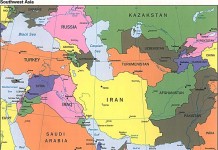Context
 The EU came into being at a time in history when liberal political theory — of cooperation between states being not only possible but preferable, of minimizing the role of government, of the prevalence of private over public property — was fast gaining tract. This was against the backdrop of the aftermath of World War II, when the predominant problem in governments and theorists’ minds was how to avoid such an atrocity in history again. At the time, as PoliTact has previously noted, interdependence between states was thought of as a sure means to curb, if not cure, war between states and at the same time bring about great economic prosperity. However, the present ground reality appears be shifting dramatically with serious consequences for the future of EU.
The EU came into being at a time in history when liberal political theory — of cooperation between states being not only possible but preferable, of minimizing the role of government, of the prevalence of private over public property — was fast gaining tract. This was against the backdrop of the aftermath of World War II, when the predominant problem in governments and theorists’ minds was how to avoid such an atrocity in history again. At the time, as PoliTact has previously noted, interdependence between states was thought of as a sure means to curb, if not cure, war between states and at the same time bring about great economic prosperity. However, the present ground reality appears be shifting dramatically with serious consequences for the future of EU.
Analysis
The formation of the European Union (EU) was predicated on liberal economic theory of free-trade and economic cooperation. It had its genesis in the 1951 treaty of Paris and the 1957 treaty of Rome, which established the European Coal and Steel Community (ECSC) and the European Economic Community (ECC) respectively.
The six founding members, Germany, France, Belgium, Italy, The Netherlands and Luxemburg shared not only a geographical proximity, comprising a core group of states from Western Continental Europe but also a great deal of ideological and cultural similarities and shared history that helped make the budding EU a success.
The EU came into being at a time in history when liberal political theory — of cooperation between states being not only possible but preferable, of minimizing the role of government, of the prevalence of private over public property — was fast gaining tract. This was against the backdrop of the aftermath of World War II, when the predominant problem in governments and theorists’ minds was how to avoid such an atrocity in history again. At the time, as PoliTact has previously noted, interdependence between states was thought of as a sure means to curb, if not cure, war between states and at the same time bring about great economic prosperity.
Whether it was the increased cooperation, or the economic boom from post-war reconstruction, the budding EU was very successful, and other neighboring states wanted a piece of the prosperity pie. By the time the first new members were admitted in 1973, the ideological backdrop for the EU had changed significantly, and money and economy were driving forces behind nation states applying for EU membership. It is arguable that of the original members, Germany remained more steadfastly attached to the original ideology that governed the EU than any other member state, having perhaps a more acute national memory of the war.
Cut to the modern day, and the EU has expanded to include 27 member states, 17 of which use the Euro currency. The 2008 global financial crisis (GFC) affected countries all around the world, but it has had a more profound systemic impact in the EU, because it has exposed fissures in the fabric of the EU itself.
The most prominent issue facing the EU at present is the situation in Greece. Because of the degree of interconnection between the economies of EU, and particularly Eurozone states, a Greek default will trigger financial collapses elsewhere, with the other countries most at risk being Portugal, Italy, Spain and even France. However, ejecting Greece from the Eurozone, while an attractive option from a distance, is not really viable unless the EU has a vast sum of money to cover the Greek debt held in European banks, as well as the possibility that Italy would default shortly after and need a large bailout package.
There is no real option presenting itself for Greece to recover on its own, and another bailout will not really solve the problem unless there is a significant amount of Greek debt simply forgiven. Furthermore, bailouts are politically very unpopular in the donor countries, especially given that the donor countries, namely France and Germany, are not sailing tight ships themselves. This second bailout packaged that is currently being finalized between the EU, IMF and European Central Bank appears to be premised on a hope that it can hold Greek default off long enough for the general state of the world economy to improve and carry Greece with it.
The German reaction to the Greek problems is very telling about the ideological and cultural schism within the EU, both at a public and administrative level. While all governments to some extent presented a kind of willful ignorance regarding the initial GFC and the extent to which the banking system had gone wrong, very broadly speaking, the Germans have maintained a faith in their government and civil service to be transparent, rational and objective.
This is a cornerstone of Germanic perception regarding government, which hails from the strong current of liberal ideology that went into the formation of the EU. To a certain extent the founding members of the EU all shared these values, and the population and the government worked in accordance with the notion that an objective, rational administration would make objective, rational decisions.
In contrast, the citizens of modern Greece, and many other peripheral European nations, have never held out much faith in their governments. The governments in these countries did a fine job of playing the objective civil servant, and espousing the kinds of values the held currency in the EU, but to the population a civil servant was self-serving, first and foremost. And the bleak reality for Greece is that by and large the public perception was right.
The reason this schism in public perception and administrative capacity is important is that it exposes the weakness in the theory upon which the EU has its foundation. This is reflected with the rise in Nationalist sentiment that has been felt in Europe over the last few months, which has in fact been brewing for some time now. Cooperation between nations is possible, and maybe preferable, but it is predicated on mutual benefit. Once mutual benefit is out of the equation, it is natural for states to want to protect their own interests.
However, the level of interdependence within the EU is such that “cutting off the dead limb” so to speak is not an option. And while Greece is a major focal point for the EU financial crisis, it is not the only EU country in danger by a long shot. Belgium is in serious trouble with the collapse of state-lending bank Dexia on the horizon. Belgium got itself out of trouble in the GFC by borrowing from Dexia, but now the government-less country is looking at a bleak horizon as there is nowhere left to go to band-aid increasing debt. With Moody’s downgrading credit ratings in Spain and Portugal, the sovereign debt crisis is quickly setting up a series of dominoes ready to fall.
The reality is that the illusion of a shared system of values – political and economical, and ideological – that held the EU together has fractured, yet these countries are still bound together, their fate intertwined because of their level of interdependence.



